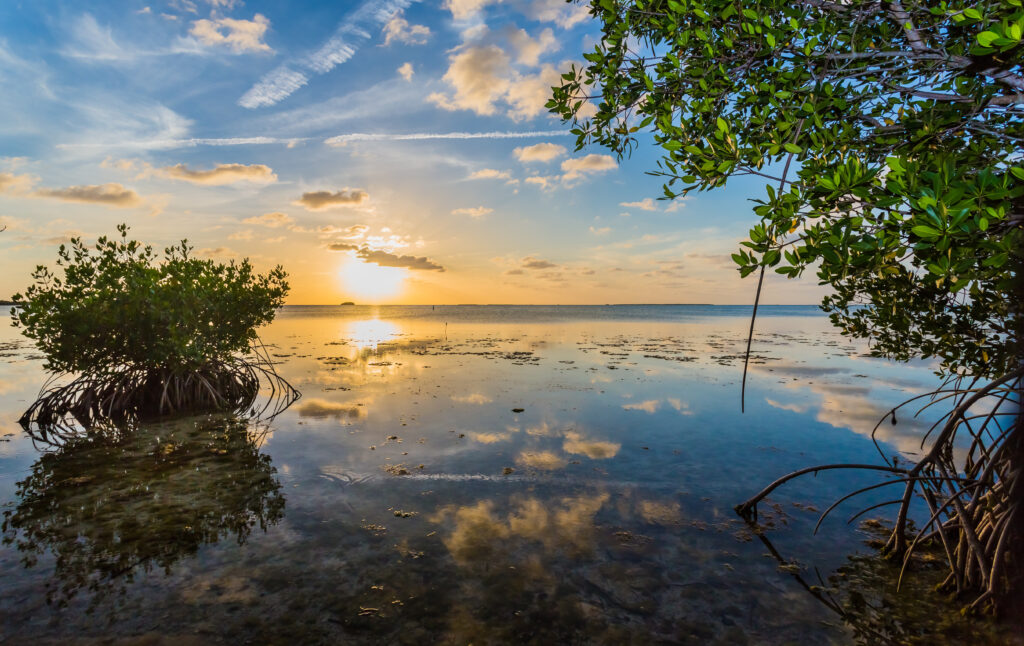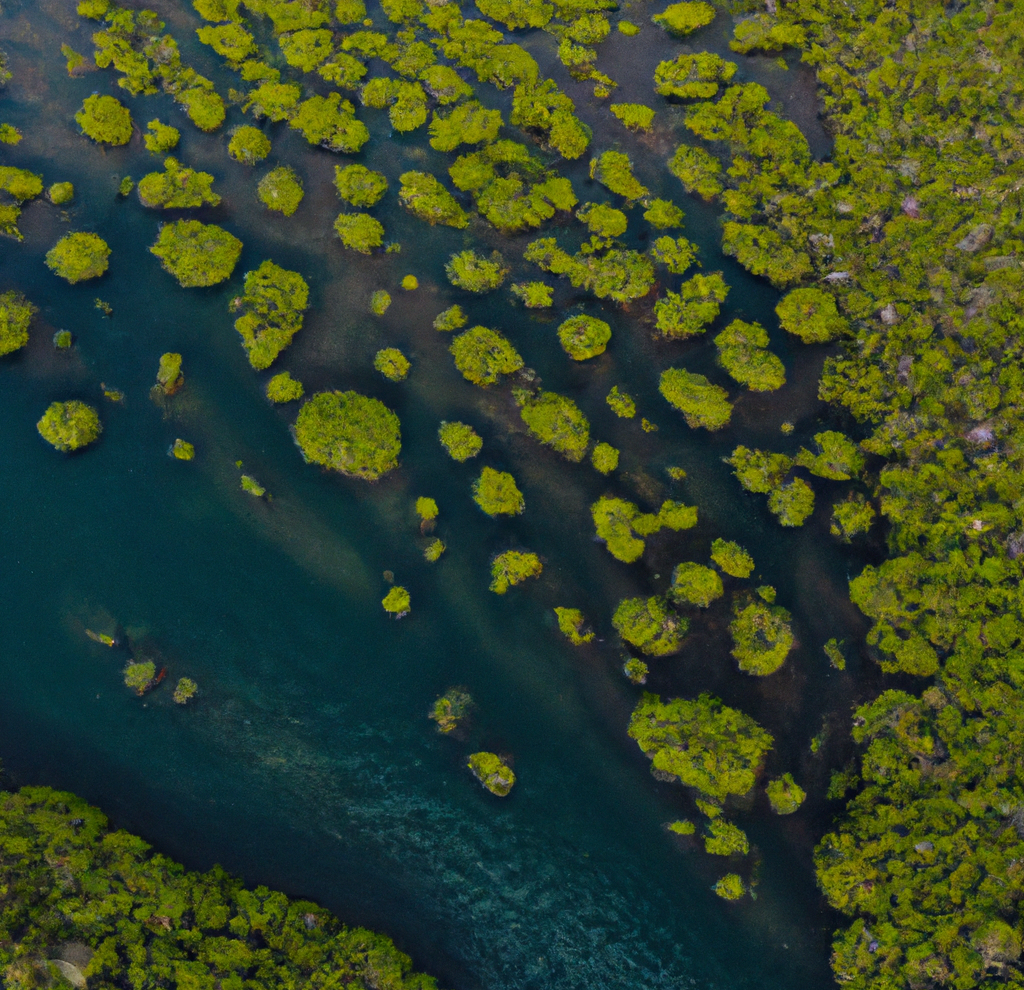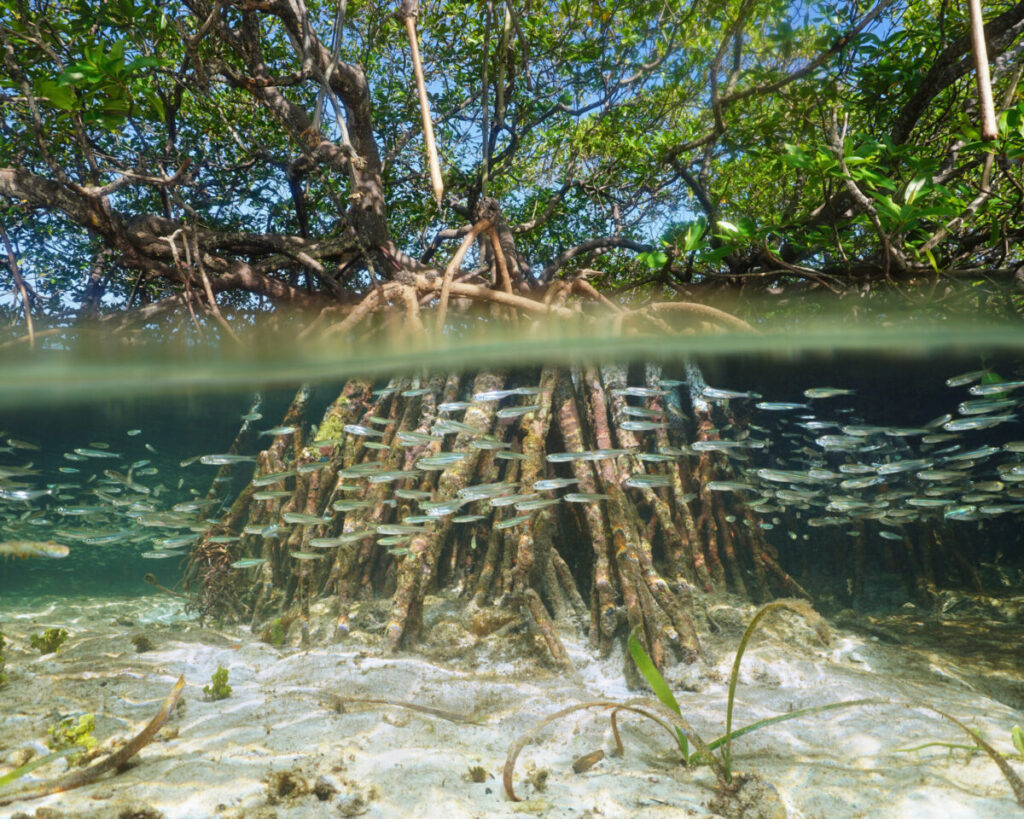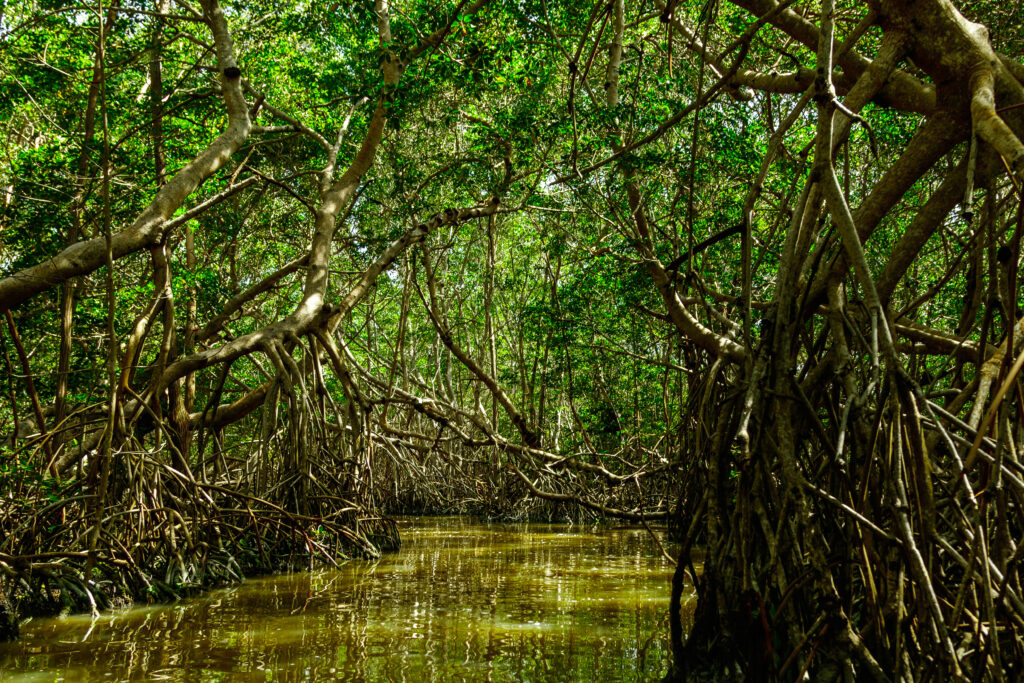WHY MANGROVES MATTER
The Moore Charitable Foundation works toward the protection and maintenance of mangrove forests, some of the most ecologically sensitive and important habitats in the world. Mangroves are essential to coastal ecosystems, protecting homes and infrastructure from tropical storms, supporting robust biodiversity above and below the water, mitigating climate change by sequestering massive amounts of carbon dioxide, and serving as nursery grounds for essential fishery species.
The Moore Charitable Foundation’s Panama affiliate, the Islas Secas Foundation, and its Bahamas affiliate, the Moore Bahamas Foundation, champion mangrove education, advocacy, policy, and restoration within their respective borders.
Protecting the Mangroves of Panama


The Islas Secas Foundation (ISF) works with other organizations in Panama to protect and spread awareness about one of Central America’s densest mangrove forests along Panama’s Pacific coast.
With ISF support, Wetlands International (WI) has restored at least four hectares of mangrove and promoted the creation of a protected area in Manglares de David. WI has benefited from important community participation in its projects, with more than 88 local volunteers from five communities and support from the local environmental government entity. Together, ISF and WI developed an offsetting scheme to reduce the carbon footprint through cost-effective blue carbon opportunities in Panamanian wetlands.
ISF also works with groups to protect marine life in Panamanian mangroves. In one such case, ISF has aided the Mote Marine Laboratory, an organization comprised of world-class marine scientists committed to helping oceans thrive through groundbreaking research and education. Working with Mote’s Shark and Ray Conservation Program, the Islas Secas Foundation supports eDNA sampling of endangered Sawfish within mangrove ecosystems in the Gulf of Chiriquí to drive informed management plans.
Protecting the Mangroves of the Bahamas
The Bahamas is home to vast mangrove ecosystems, harboring the second-largest mangrove area in the insular Caribbean region behind Cuba. Mangroves are key to the economic and ecological integrity of The Bahamas—they are critical to biodiversity and serve as nurseries and spawning grounds for up to 70% of the country’s ecologically and commercially important marine life.
The Moore Bahamas Foundation (MBF) is committed to supporting several initiatives and partner organizations that work to protect Bahamian mangrove forests.
In 2022, the Perry Institute of Marine Science (PIMS) released its Mangrove Report Card for The Bahamas. This groundbreaking assessment of the health of The Bahamas’ mangrove ecosystems is helping to guide policy, restoration efforts, and conservation plans nationwide.
The Bonefish and Tarpon Trust (BTT) is another of MBF’s Bahamas partners. BTT has worked to repair mangroves damaged by 2019’s Hurricane Dorian. According to a BTT assessment, nearly 74% of Grand Bahamas’ mangrove cover was destroyed by the storm. The organization has established mangrove monitoring sites to observe how certain conditions can affect the mortality and growth rates of newly planted mangroves.
In 2023, MBF, BTT, and local nonprofits the Perry Institute for Marine Science (PIMS) and Waterkeepers Bahamas (WKB) announced the founding of the Bahamas Mangrove Alliance (BMA). The group works to protect and restore mangroves by engaging with local Bahamian communities through education and grassroots advocacy.


